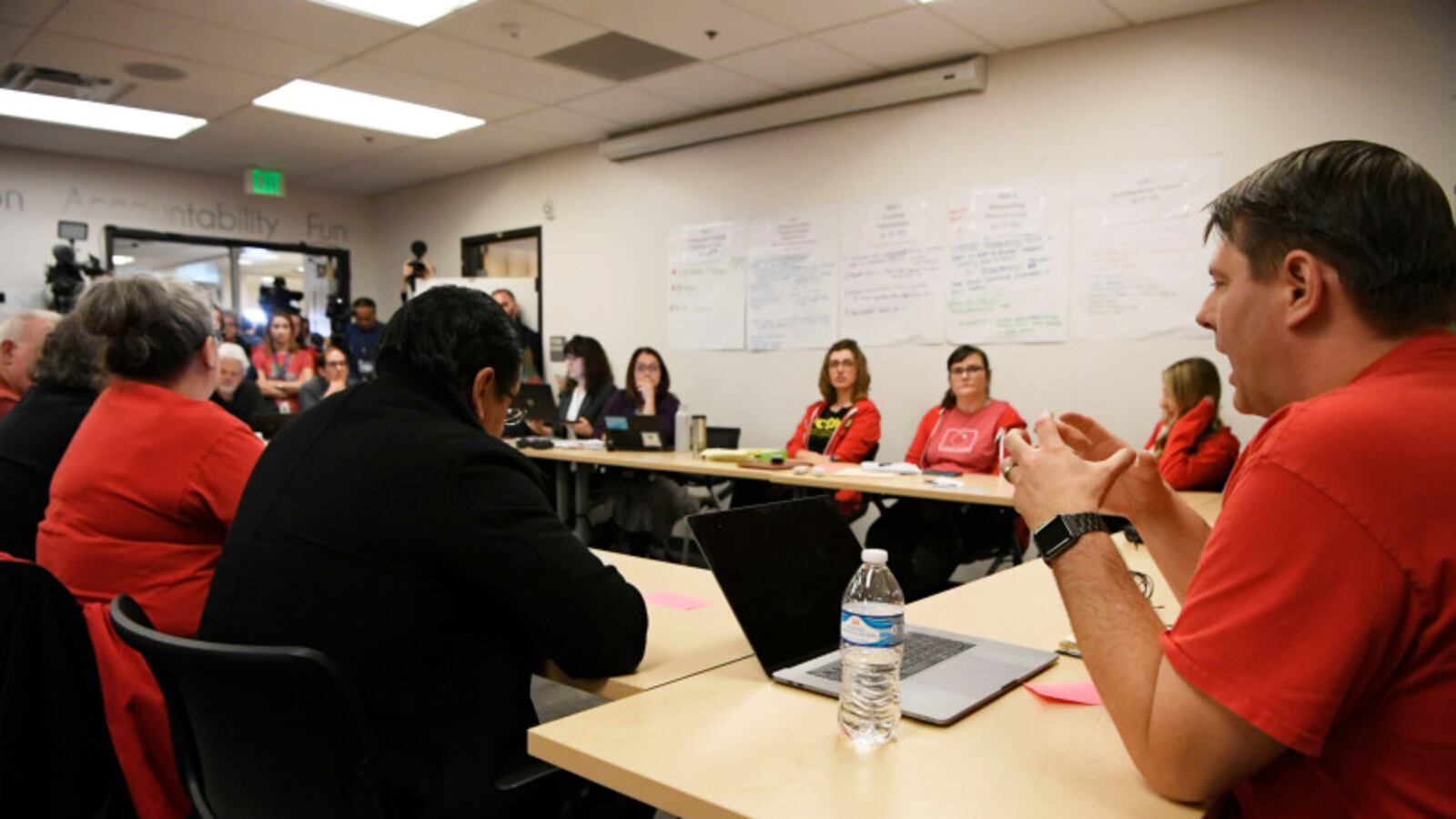Returning to the bargaining table three days before a planned teacher strike, the Denver school district and teachers union spent four hours Friday night debating one particular area of disagreement: whether teachers should get raises for completing training courses.
This technical issue will influence how quickly teachers can boost their salaries as well as the long-term costs of the teacher pay system. In a sign of the distance still to be bridged, the two sides had very different perceptions of how much progress was made.
Denver Public Schools Superintendent Susana Cordova said she was happy with the discussion and felt like the two sides “made really big movement.”
But Denver Classroom Teachers Association President Henry Roman said in a statement that “very little progress was made.” He noted that teachers are ready to strike Monday if an agreement is not reached before then.
The two sides agreed to continue negotiating Saturday at 1 p.m.
The tenor at the bargaining table was more collaborative than in the past two sessions, which ended with the union flatly rejecting the district’s proposal and walking out. But the feeling from the teachers in the audience, who occupied every chair and sat cross-legged on the carpet, was just as frustrated and fed up as it has been for more than a year.
“What do we want? Fair pay!” they chanted during breaks. “When do we want it? Yesterday!”
The district and the union are negotiating how to revamp ProComp, Denver Public Schools’ system of bonuses and incentives that teachers receive on top of their base pay. Friday was the first time the two sides had met since Gov. Jared Polis decided on Wednesday he would not intervene in the dispute, thus clearing the way for a strike.
Both the district and the union want to simplify ProComp, but they disagree on the details.
The Denver Classroom Teachers Association has long proposed allowing teachers to use “professional development units” to change lanes on the salary schedule and boost what they earn, the same as teachers would use college credits or advanced degrees.
Denver Public Schools officials have expressed worry about what that would cost. On Friday, the district presented a new proposal that would allow teachers to get raises for completing training courses, but not as quickly as the union wants.
Denver teachers do an average of one professional development unit per year. Under the district’s proposal, teachers who use professional development units as the sole means to boost their pay — as opposed to earning college credits or an advanced degree — would have to wait seven years to turn those professional development units into a raise.
“That’s a very long time for people to wait,” union lead negotiator Rob Gould said.
The union had several other concerns with the proposal as well, including that it took 15 months of negotiating for the district to entertain the idea of using training courses to change lanes.
“This is a conversation we should have had six months ago,” Gould said. “You have 48 hours until a strike and you now bring up this conversation. It’s disheartening.”
Cordova asked union negotiators whether they would be willing to put “guardrails” around the type of training courses that could count toward raises, with an eye toward keeping the cost of raises down and making sure the courses are rigorous. Professional development units involve teachers identifying an area they’d like to improve, studying how to do that, trying new techniques in their classroom, and reflecting on how they worked.
“The questions are: financially sustainable and rigor,” said Debbie Hearty, the district’s human resources chief. “How do we do that? And we’re really curious to figure that out with you.”
Union negotiators argued their proposal already includes safeguards, including that teachers could only use professional development units to change one lane per year.

